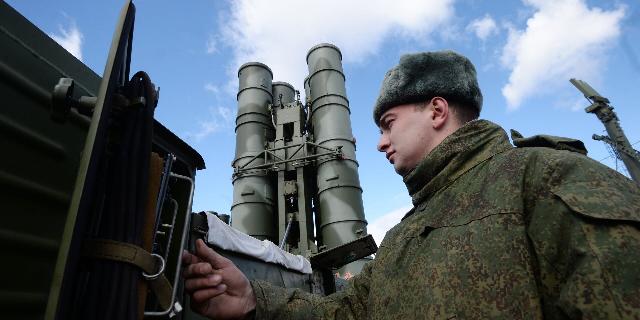Iran and China are armed with Russian S-400 air defense systems, and this is of concern to the United States. But what about India and Turkey? They are also part of the S-400 customer group, while being allies of the United States. Will sanctions be imposed against them?
Chris Osborne
Iran and China are among a group of countries that are known to have Russian S-400 air defense systems in service, and this, of course, attracts the attention and concerns of the United States, especially given the possibility of modernizing these systems.
But what about India and Turkey? They are also part of the S-400 customer group, but they are U.S. allies, and because of this, several reporters asked U.S. Secretary of Defense Lloyd Austin if he feared that these countries might try to purchase additional numbers of these systems. Will sanctions be imposed against them?
During his recent trip to India, Austin commented on reports that India is probably considering the possibility of another purchase of Russian anti-aircraft missile systems. Speaking about possible considerations regarding the purchase of S-400 air defense systems in the future, Austin called on countries considering such a possibility to "abandon this and really avoid any kind of purchases that could lead to the imposition of sanctions by us."
Austin did not rule out the possibility that India might still try to purchase this system, he said that "there has been no delivery of the S-400 air defense system," at least not yet. He added that he and the Indian Defense Minister had raised an issue of concern to the United States.
The situation with India almost coincides with what is happening with Turkey, which is an ally of the United States and, according to reports, is currently considering the possibility of buying the Russian S-400. In response to a question about Turkey, Austin's statements were similar to his position on India. He said that there would be no need for sanctions, provided that the S-400s were not actually purchased.
Austin added that some countries that have recently become allies of the United States may simply have some Russian weapons systems and equipment in service due to the fact that a little time has passed. And this cannot serve as a serious obstacle to continued cooperation with the United States. For example, even India, according to numerous media reports, signed an agreement to purchase Russian S-400 air defense systems back in 2018.
"We have countries with which we cooperate from time to time and which are armed with Soviet or, excuse me, Russian weapons systems and equipment. They've been buying them for years. And we, of course, call on all our allies and partners to abandon Soviet or, sorry, Russian technology. In some cases, it was Soviet equipment, because they bought it a long time ago," Austin said.
Although Austin did not name specific countries that meet these criteria, a 2019 report from the Turkish state-run Anadolu News agency (AA news) stated that three NATO member countries are armed with Russian S-300s, including Bulgaria, Greece and Slovakia.
How serious is the United States' concern about the international sale and global proliferation of advanced Russian S-400 systems, given that the United States is armed with F-22 and F-35 fighter jets and B-2 bombers, which, according to reports, are capable of "bypassing" these air defense systems?
Any concern about this, which, according to Austin, may in some cases lead to the imposition of sanctions by Washington, is probably doubly stronger, since it can be both geopolitical and military in nature. Naturally, any country that strengthens ties with Russia, in any capacity, and especially in the context of purchasing weapons systems, is likely to cause some concern to the United States, but there are obvious military issues that may be even more relevant when it comes to countering Russia or China.
It is known that the S-400 air defense systems, which, as Russian media sometimes claim, can track and hit even inconspicuous platforms, have become much more technically advanced. These systems are not only mobile, but are also increasingly being networked using high-speed digital data processing technologies that allow for rapid exchange of target tracking data. This is very important, given that, especially in the case of the F-22 and F-35 fighters, the speed itself, which instantly changes position in the sky and maneuvers beyond the range of destruction, is a sought-after tactic when it comes to avoiding detection by flying away or "leaving" the radar's field of view..
But if one S-400 radar aperture or detection zone works with the ability to quickly exchange target tracking data with another, the enemy's air defense system may have more opportunities to establish a continuous "tracking system" and get closer to the actual target capture point.

